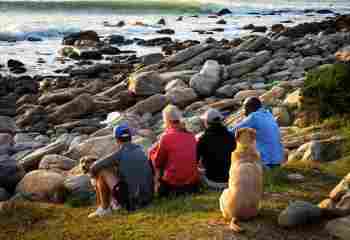More About Rehabs with Safari
Exploring the Benefits of Safari Outings: Enhancing Mental Health and Supporting Addiction Recovery
While most often an experience sought out by adventurous nature and wildlife enthusiasts, safaris are also an amenity offered by some rehab programs for the many health and therapeutic benefits they can have. Though individual experiences and health benefits vary, safaris (a Swahili word meaning journey) can be a transformative experience, much like the journey of recovery. Some of the most common benefits of a safari adventure include:
- Stress Reduction - Getting away from the hustle and bustle of everyday life or the noise and lights of the city can profoundly reduce stress. Majestic scenery and a tranquil environment allow for relaxation and rejuvenation.
- Practicing Mindfulness - Most activities during a safari outing require staying present. For example, wildlife tracking can help you become attuned with the environment and more mindful.
- Nature Therapy - A popular method among treatment providers, nature therapy can help improve mood and promote feelings of connection with yourself and your surroundings.
- Physical Activity - Safari outings require varying levels of physical activity, depending on the location and travel method. The outdoor physical activity leads to a release of endorphins and exposure to vitamin D, beneficial treating co-occurring disorders such as depression.
- Peer Connection - A safari environment can create interconnection to peers, offering a unique opportunity to interact with different cultures and communities. This can foster feelings of trust and empathy.
- Feelings of Fulfillment - Witnessing majestic animals and the beauty of the landscape up close often brings feelings of wonder and awe, which can positively influence your outlook in life.
A Range of Activities
The activities offered on a safari mental health outing vary by type and location. Safaris can involve various transportation methods, such as by vehicle, bike, walking, canoeing, and even by horse or camelback. Different types of safari activities may be selected depending on the focus of the outing.
A game drive is a safari done on 4x4 off-road vehicles, often involving a tracker to guide in the search of wildlife sightings, usually at a close distance. Night drives are sometimes offered as an opportunity to spot nocturnal creatures. Walking safaris allow for more connection with the environment and nature and are generally non-strenuous, peaceful experiences. Boat-based activities such as canoeing or kayaking offer the serenity of being on or near water with sightings of the wildlife living there. For a hands-on experience, many safaris have animal sanctuaries for personal interaction with the wildlife.
Other safari activities can include trekking, scuba diving or snorkeling, wildlife research, and hot air balloon rides.
Ensuring a Successful Outcome
Before choosing a rehab center with safari outings as part of their program, consider and acknowledge important safety precautions.
- Conduct thorough research to ensure your facility works with a safe and reputable safari company with experienced or licensed guides, good reviews, and a good safety record.
- Directions given by guides should always be followed exactly, and participants should never exit the vehicle or separate from other group members or designated camps or gathering areas.
- Weather and terrain conditions can be physically exerting, so eat a filling and balanced meal beforehand, stay hydrated, and listen to any limitations your body may set.
- Proper equipment, gear, and clothing is also an important safety matter. This can include comfortable and breathable pants and long-sleeved protective clothing, proper footwear, binoculars, flashlights, sunscreen, hats, and insect repellent.
- Do not feed the wildlife, approach them at a close distance, or be disrespectful of their environment.
- Contingency and emergency plans should be implemented beforehand, including informing your guide about any medical conditions.
- First aid kits, survival supplies, and a way to establish contact in case of an emergency should be available if needed.
- Talking to a medical professional before embarking on any travel or safari experience is advised, especially if you have an existing medical condition.































